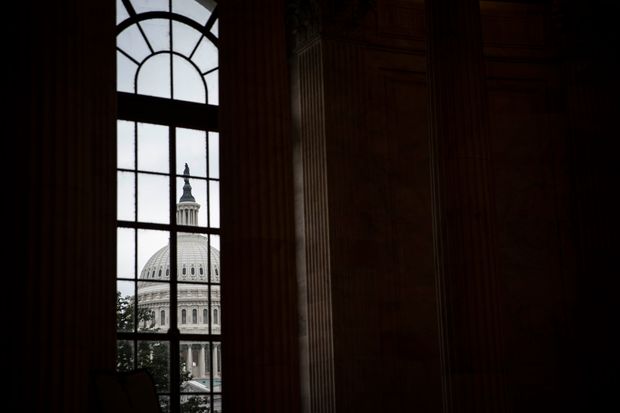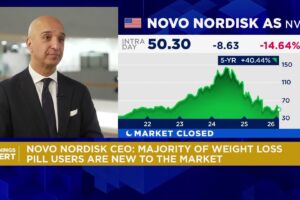
Does the Senate matter more than the presidency?
Sarah Silbiger/Getty Images
Half a loaf is better than none, according to the old saying, and that’s what stock-market investors appear likely to take away from a U.S. election that remains too close to call, argued a Wall Street bull who accurately forecast the market’s rebound from its March pandemic low.
The S&P 500 index SPX, +2.82% could trade to 3,800 in 2021, said Barry Bannister, head of institutional equity strategy at Stifel, in a Wednesday note. That would be a 12.8% rise from its Nov. 3 close.
“The White House is now too close to call, but Republican Senate control looks quite probable to us,” Bannister wrote in the early morning missive.
Read: Biden leads Trump with control of White House, U.S. Senate still in doubt
Vote counting continues in a handful of key states that could determine the outcome of the race between Democratic challenger Joe Biden and President Donald Trump. Control of the Senate remained up for grabs, but the path for a Democratic takeover of the upper chamber appeared less likely. Democrats expanded their majority in the House.
Heading into the election, expectations for a Democratic sweep, or “blue wave,” had been cited as a positive for equities based on expectations it would clear the way for a more aggressive fiscal stimulus package to boost economic growth in the wake the coronavirus pandemic.
But stocks were up sharply on Wednesday despite the unclear outlook, with the S&P 500 up 2.4% and the Dow Jones Industrial Average DJIA, +2.20% gaining more than 500 points, or 1.9%.
See: Stock-market hope for a ‘blue wave’ Election Day outcome washes out
Bannister said investors might be relieved by an outcome that squelches prospects for a repeal of the 2017 corporate tax cut, one of Biden’s campaign pledges.
“Divided government should take tax increases off the table (which may have shaved around 10% off 2021 S&P 500 [earnings per share] if enacted) while reducing (but not eliminating) a large stimulus package that would have increased economic reflation (which would have been good for ‘value’ but compressed the [price/earnings] ratio of the S&P 500); we prefer growth stocks.”
With both Trump and Biden pining to be “big spenders,” control of the White House is somewhat less relevant than control of the Senate, Bannister said. Senate Republicans had opposed calls for another large, pre-election financial aid package favored by both House Democrats and Trump.
Stifel had initially expected the S&P 500 to sell off in the event that Republicans retained control of the Senate as hopes for a big stimulus package faded, but investors instead appeared more interested in low taxes while probably remaining confident in Fed assistance, he said.
“It appears investors may be satisfied with at least half a loaf (Republican Senate) and no tax increase, knowing they have a ‘Fed put] if fiscal assistance is slower in coming,” Bannister said.







